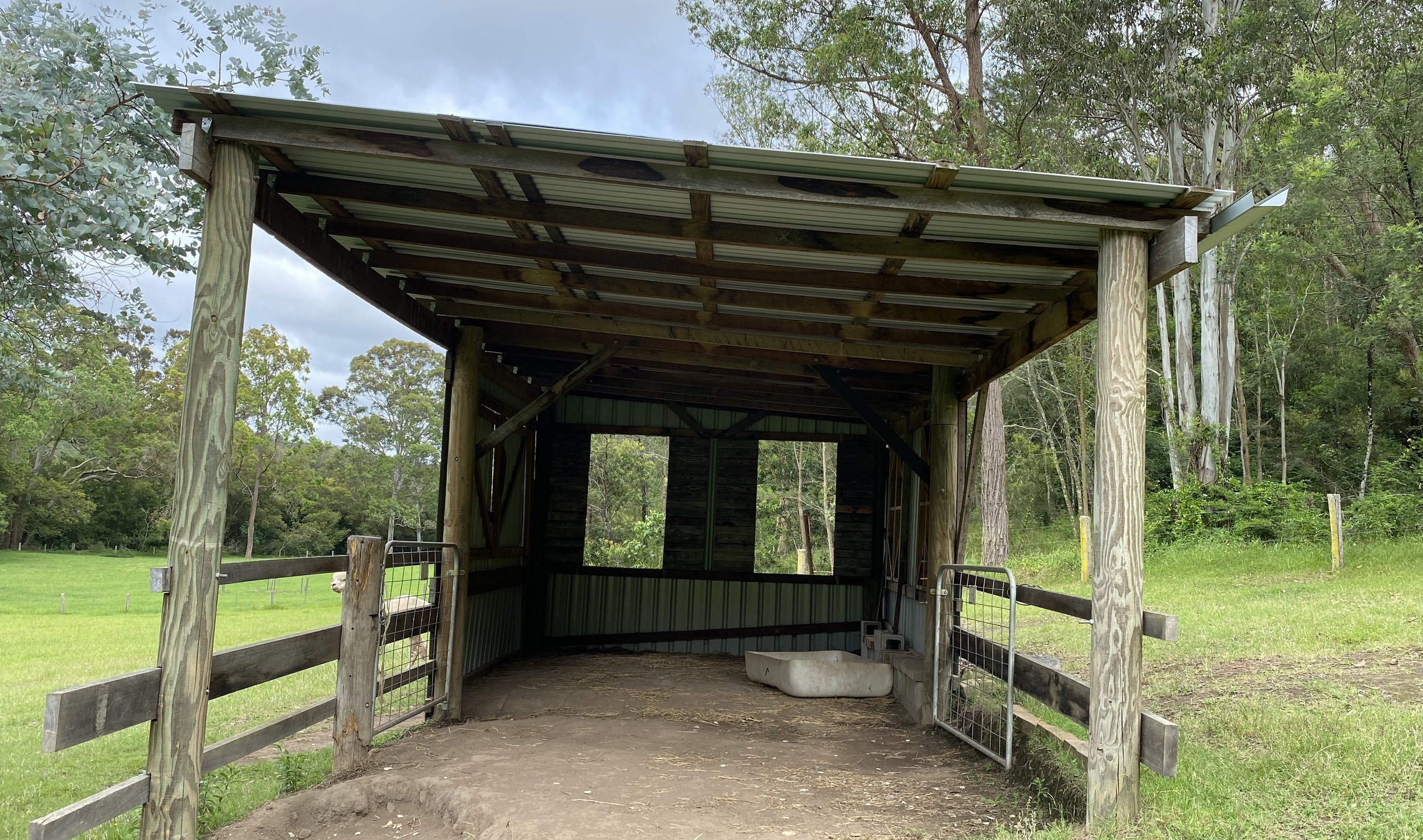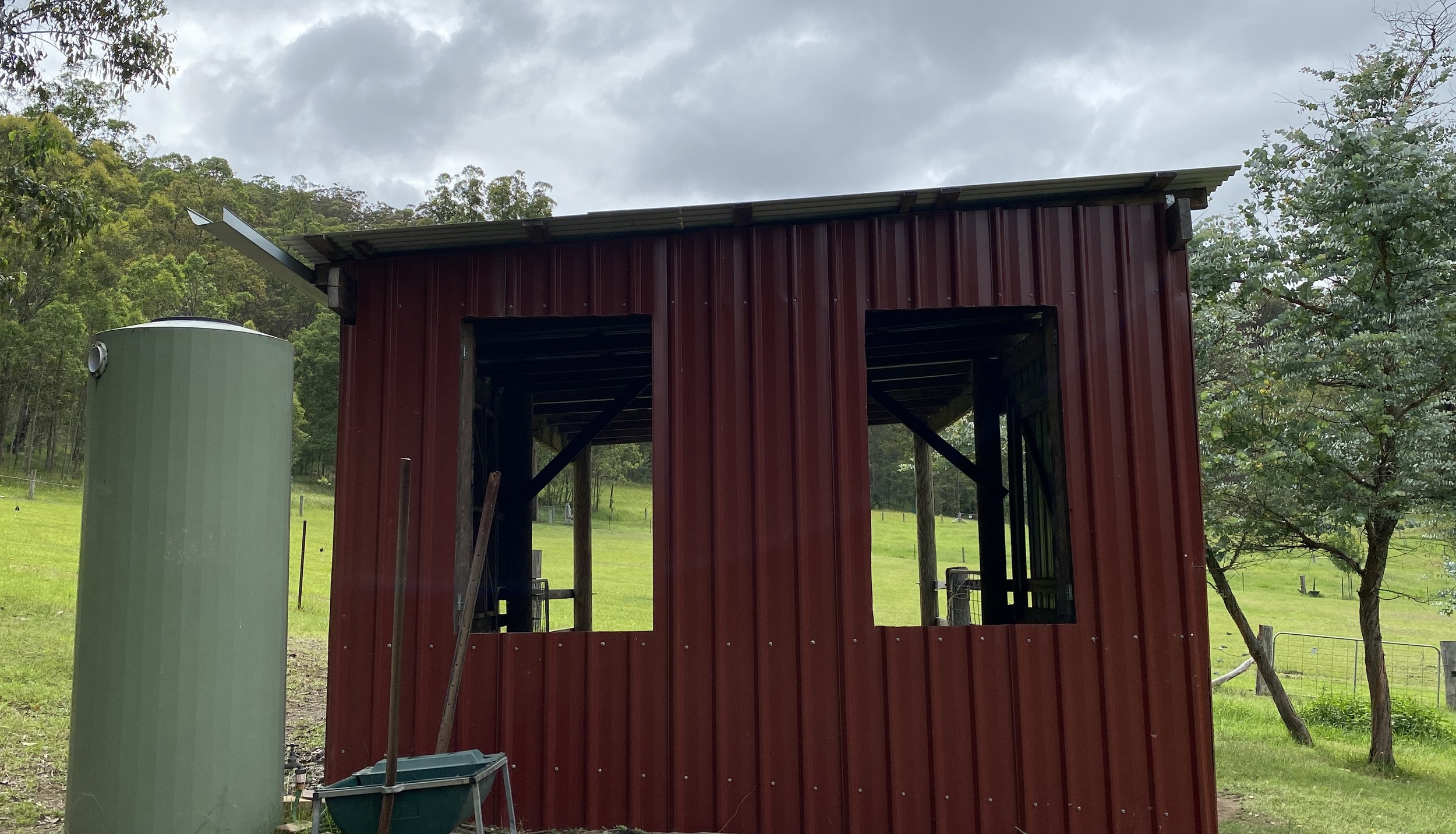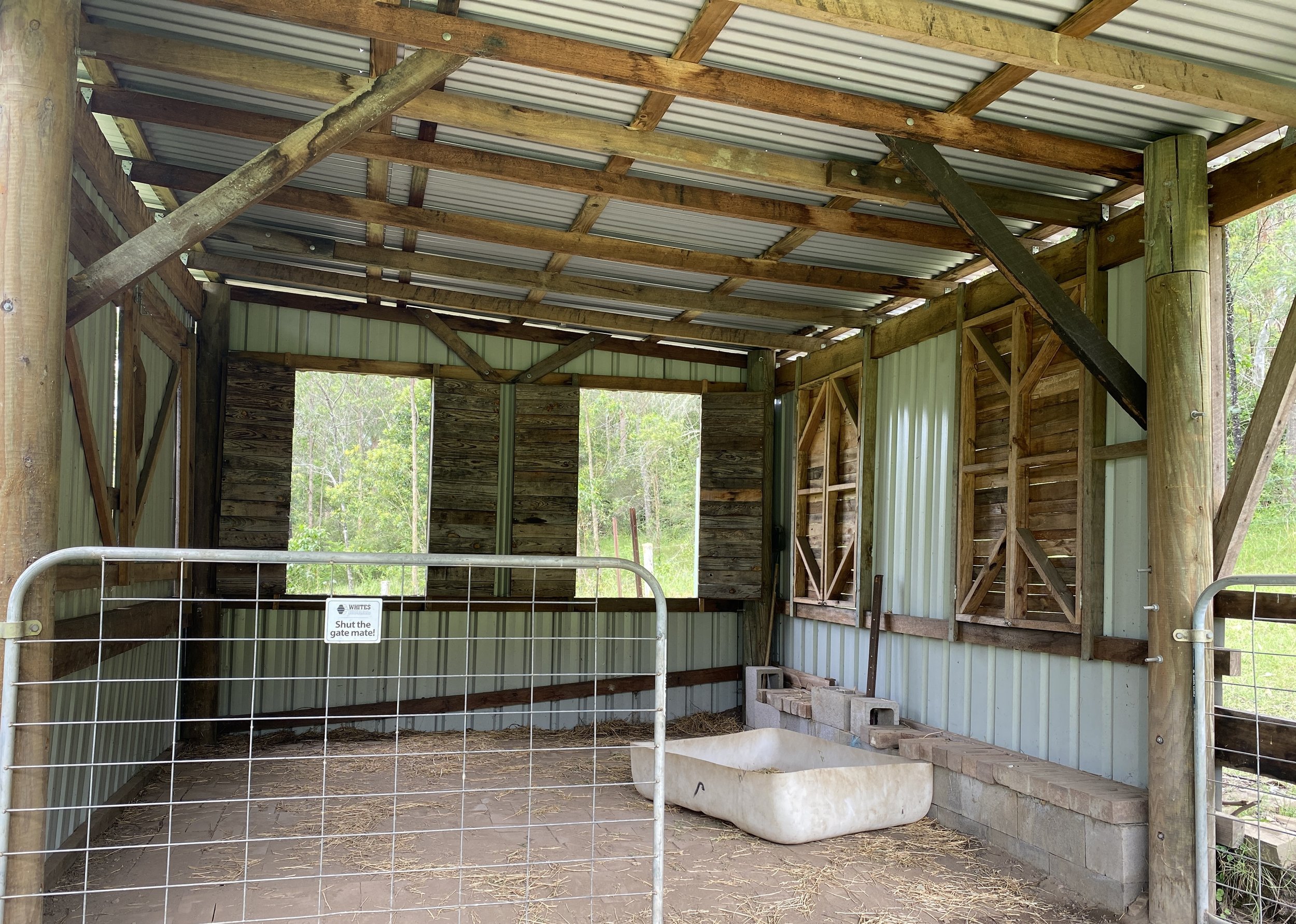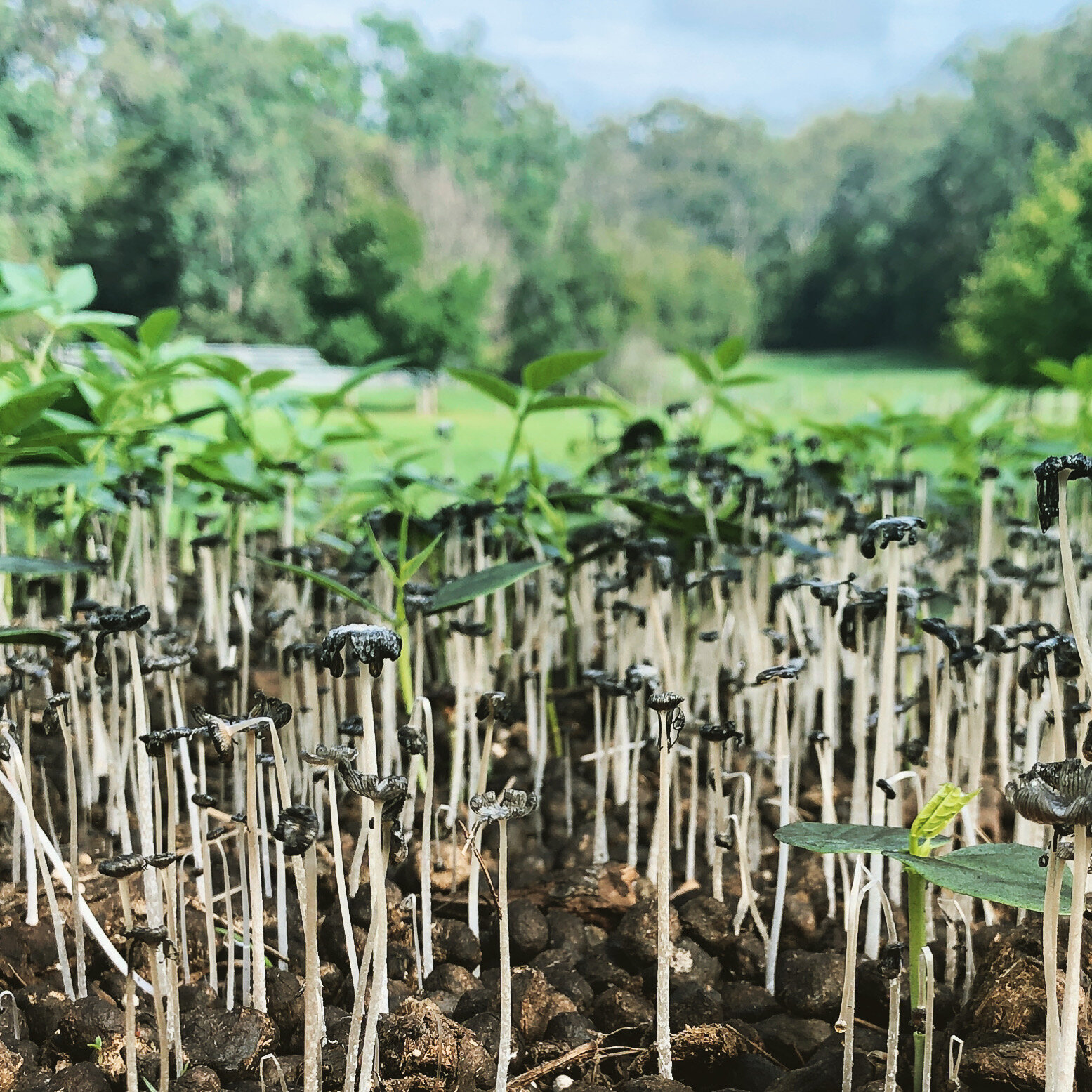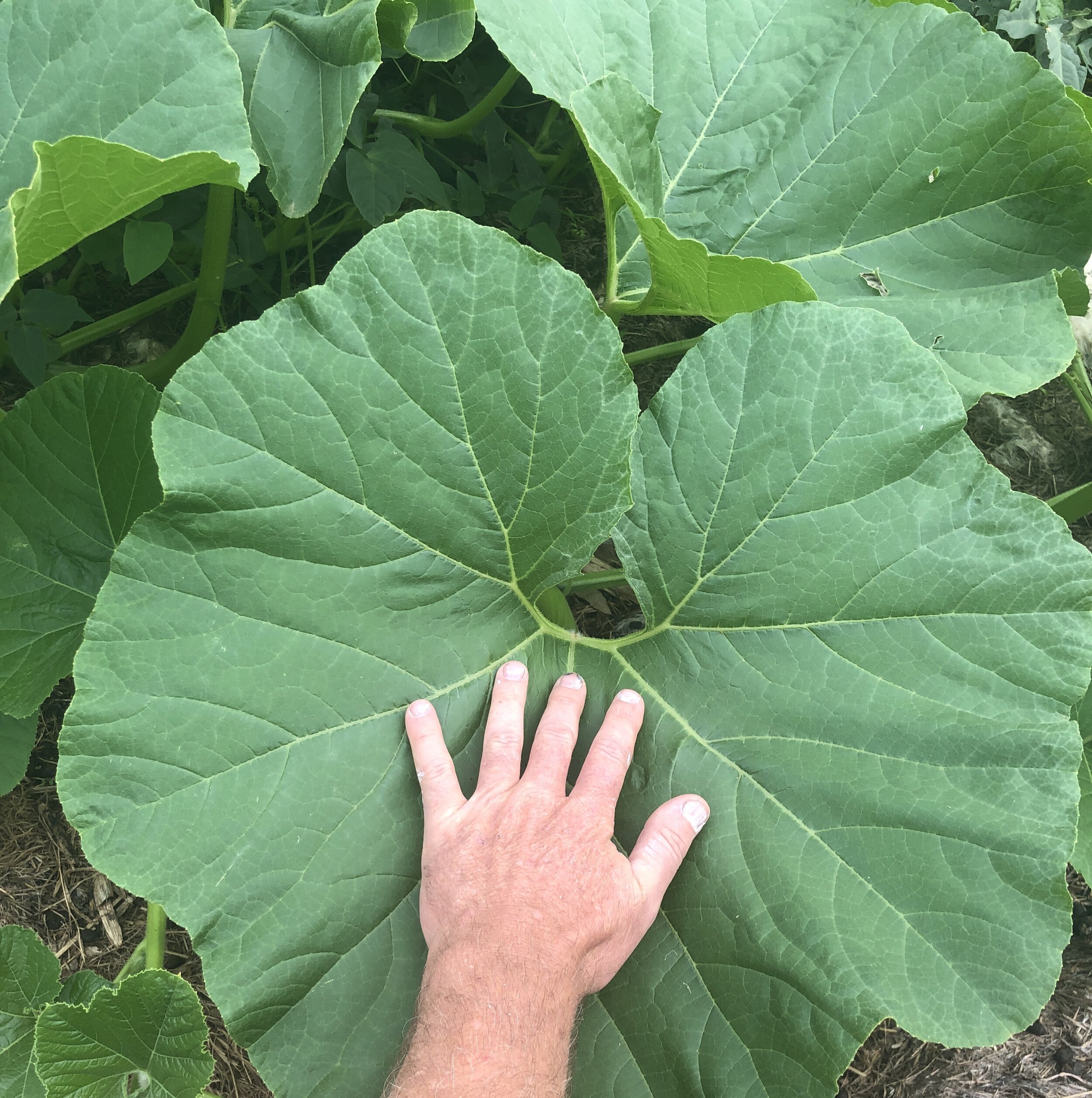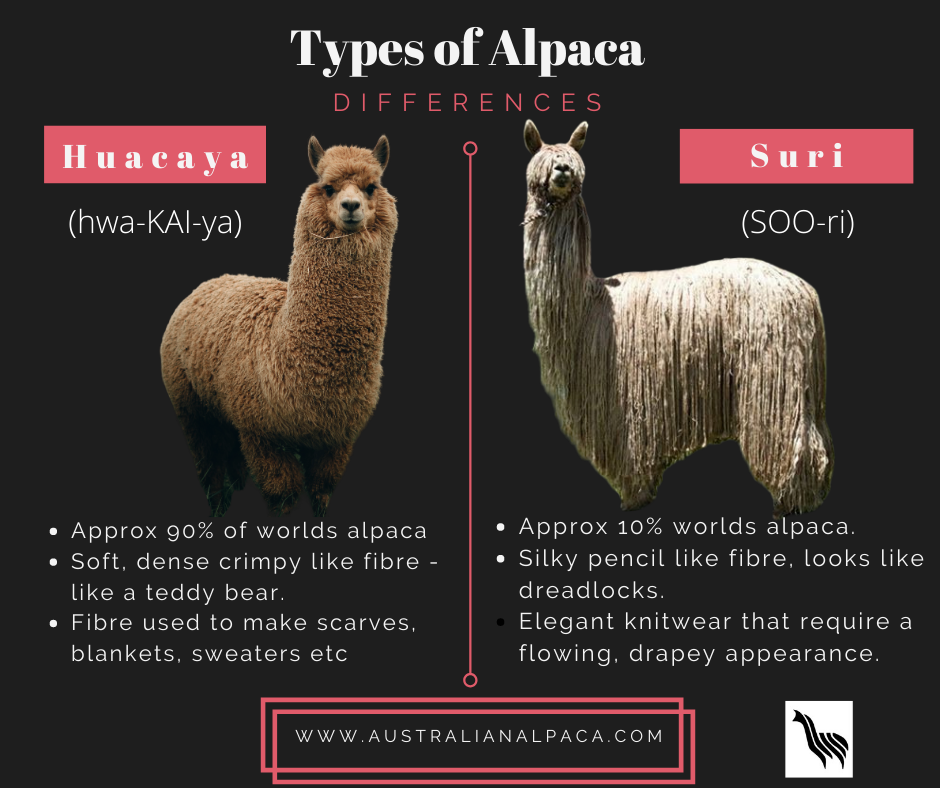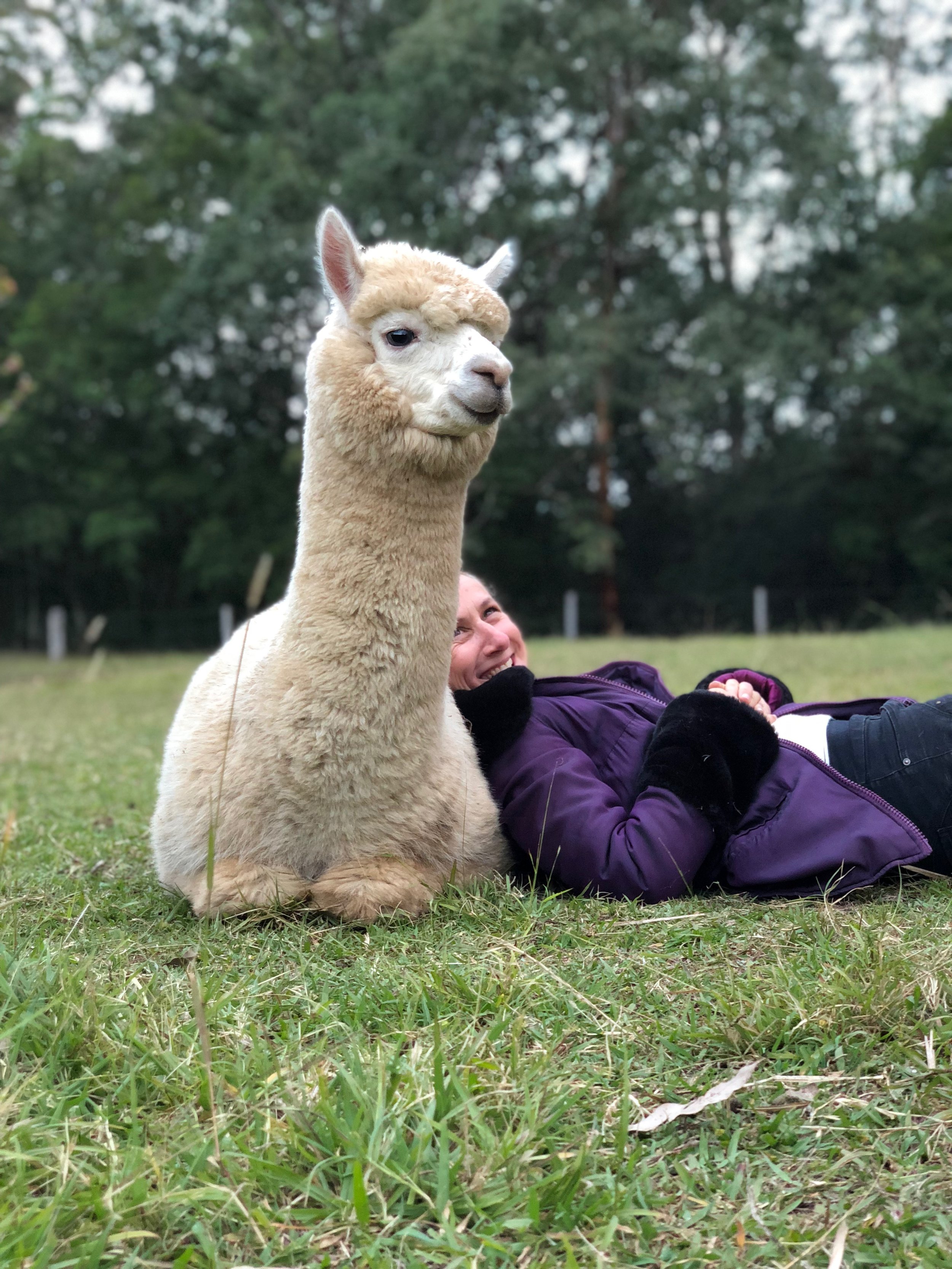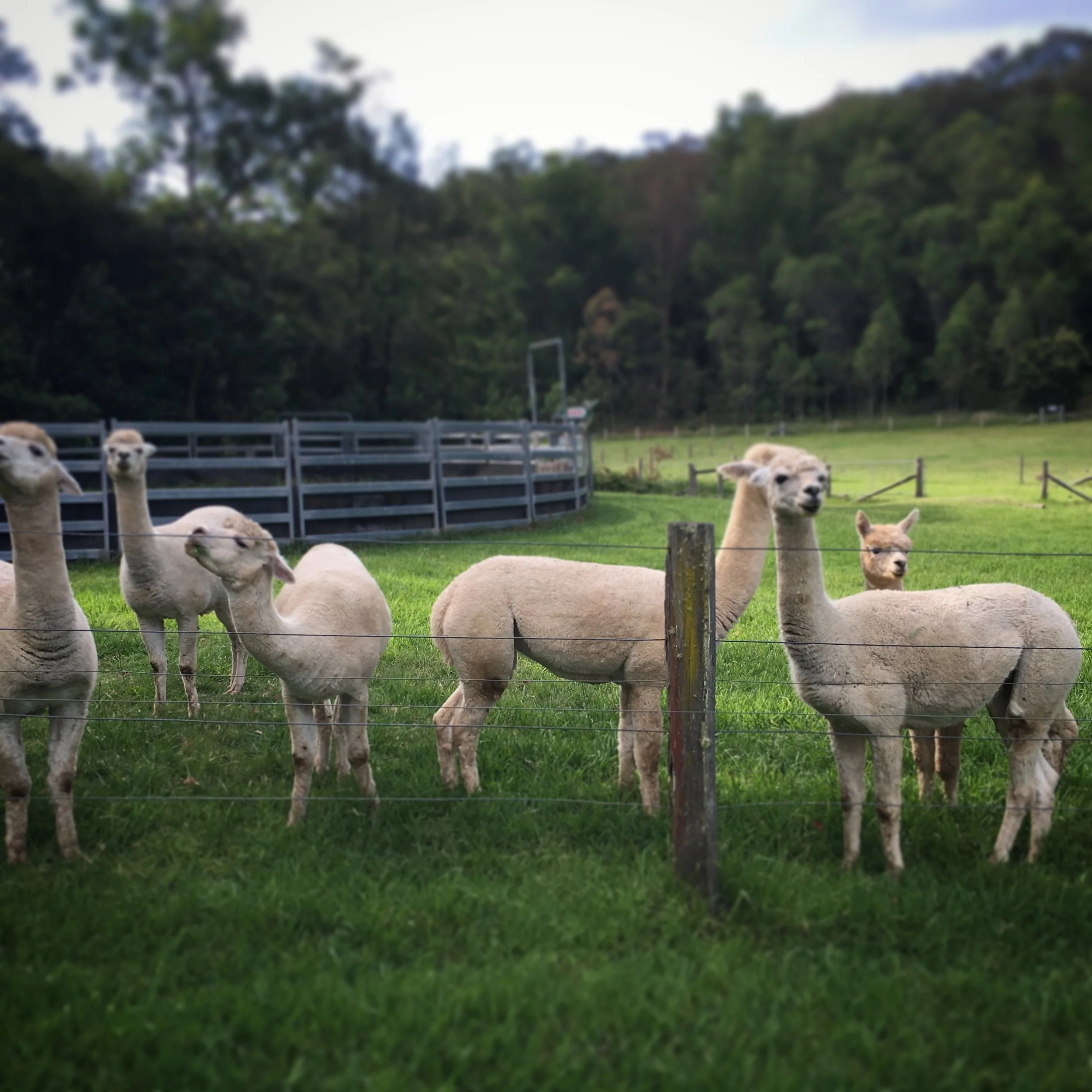Alpacas need shelter, please don’t let others convince you of anything different to that fact. The most essential & basic shelter are trees, they can provide deep shade in Summer and protection from rains and wind in Winter.
A permanent structural shelter with sides, is extremely important particularly for the protection of newborn cria and recently shorn alpacas. Simple shelters of poles and shade cloth can be erected in the absence of trees, but we highly recommend having a permanent shelter or shelters.
We have several different types of permanent shelters at Little Valley Farm. A 4 x 4 metre or larger is useful and can be used on your annual shearing day or in extreme weather conditions such as rain and windy conditions. Not all alpacas will use the sheds but it gives them the option and is extremely useful for penning them when necessary.
Fresh drinking water is a must in or around each shelter especially if penned. Alpacas will drink two to ten litres per day.
Feed bucket to help keep the feed dry avoiding mould build-up and helps reduce feed wastage.
Alpaca ‘Summer Palace’
Here are some examples of sheds we have. Below is our Alpaca Summer Palace with lots of extra shade provided by the trees and excellent cross ventilation inside. The shed has 1/2 earth and 1/2 brick floor. They prefer the earthen floor, we like the brick which stays drier longer. The shelter has opening shutters to control wind and light. Cold rainy days we close them but mostly they are open. The back are has two gates which can be closed if we need to catch them. The alpaca’s love sitting out the front of the shelter looking over the paddocks and towards the house.
Below is our Twin Shed is nicely situated in between two paddocks, so it is convenient when we do our weekly paddock rotation of the alpacas and mini donkeys. It also provides us a couple of pens to catch the Alpacas.
It has lot of cross ventilation and plenty of trees for deep shade on the northern side. The summer western sun is an issue but they move towards the large trees down the paddock on hot and sunny afternoons.
The drinking water trough is close by and they love the dirt floor to roll about in.
Twin Shed placed in between two paddocks
Twin Shed lot of gates to help create small pens and plenty of ventiliation with a solid wall to avoid the wind and rain.
Want to read more about managing your own herd? We have some great reading material to get you started. Click here. Attending one of our weekend workshops. Click here for workshop info.
More about Daniela and Euan at Little Valley Farm here.


